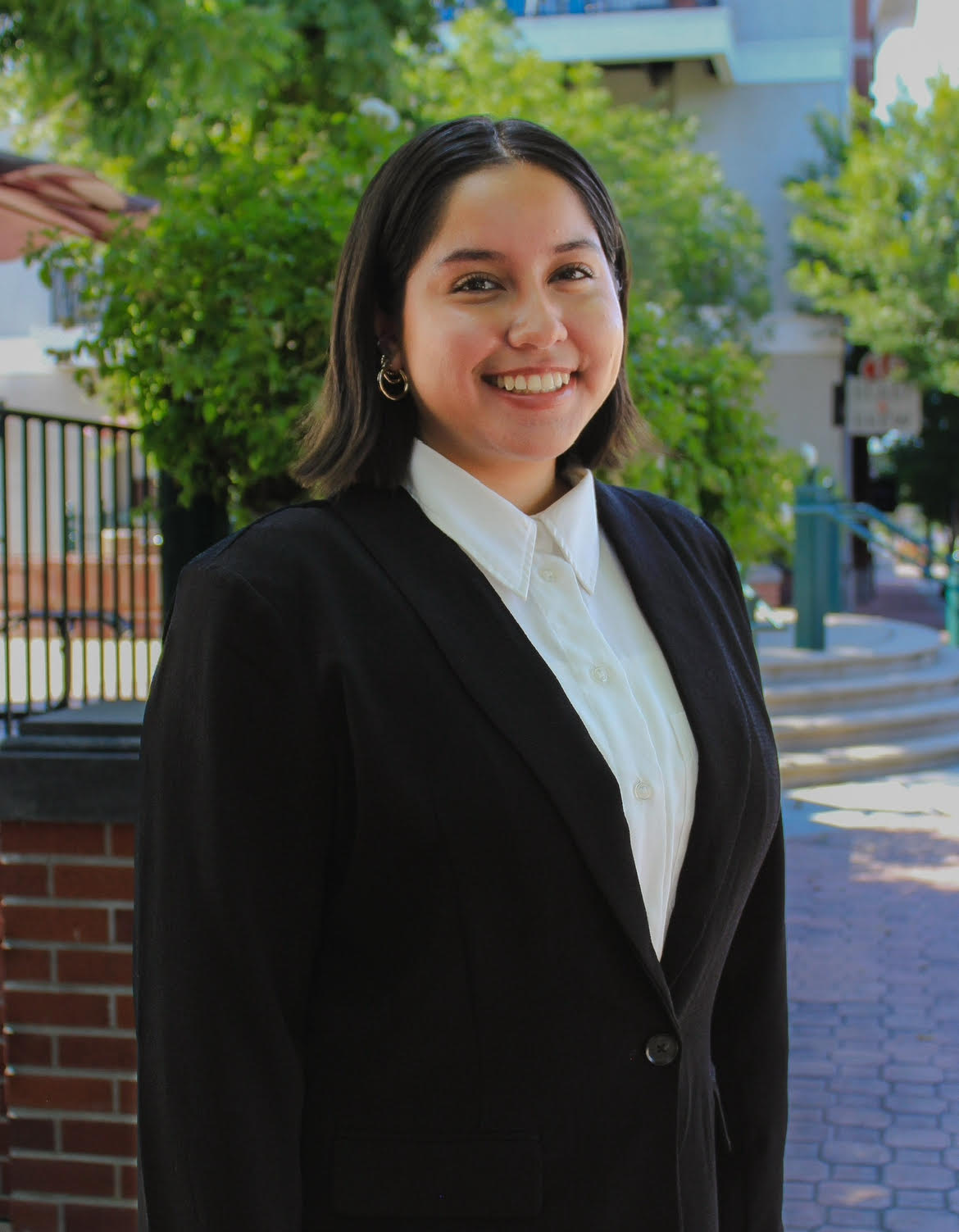Get in touch: (800) 551-3410

By the Juris Education Interview Team
Isabella Cuevas is the President of the San Jose State Mock Trial Program.
Each year, the American Mock Trial Association (AMTA) provides a (fictional) case packet for over 700 mock trial teams across the country to use in competitions. Alternating between civil and criminal cases annually, teams use the information from the case packet to formulate case theories, opening statements, direct and cross-examination questions, and closing arguments. These materials are later presented during their rounds. Teams typically compete four times each weekend, performing as the defense and as the plaintiff/prosecution once per day. Spanning a maximum of three hours, each round allows six competitors (three witnesses and three attorneys) to present their case.
Those who participate in mock trial competitions not only gain firsthand experience performing and building confidence in front of a small audience of experts in the field but also develop skills that further their personal growth and development. While competing in a trial, improvisation and collaboration with your co-counsel are essential. Other skills that can be acquired while competing include active listening, research comprehension, and public speaking. All of these skills can be applied to a future career in law or to everyday life, which is one of the best parts about participating in mock trial.
Mock Trial, similarly to a real court, is highly unpredictable, presenting its own set of challenges with each round of competition. Competitors are often unaware of their opponent's case theory and witness lineup until the round begins, making strategizing against their opposition difficult without any form of improvisation. Watching the growth of those around me and those we frequently compete against has fascinated me in recent years. Seeing the individuals with whom I have strong bonds and friendships grow in their passion for trial advocacy is genuinely the most rewarding aspect of mock trial.
Mock Trial allows participants to become comfortable in a courtroom setting while practicing trial advocacy. It introduces undergraduate students to courtroom procedures, objection-making, and other essential skills that enhance public speaking and courtroom confidence. Competitors often have the opportunity to hear from attorneys and judges who volunteer to judge their rounds, providing constructive feedback as well as meaningful connections in the field.
When students are first introduced to and begin competing in mock trial competitions, they may feel intimidated, whether it be by the 300+ page case packet or the sudden objection battles; it can all seem overwhelming. Remembering that this is not a real case and that no real people, lives, or outcomes are at stake can help reduce pressure and enhance performance. Building friendships with your teammates and competitors is essential for enjoying your time as a mock trial competitor. These bonds will allow you to feel truly engaged in your mock trial community and, most importantly, have fun.
When searching for a competition for their team(s) to attend, the executive board of a mock trial program must assess a variety of factors. These factors include, but are not limited to, cost, size, location, competition field, and date. Research can be conducted to identify a competition that best suits a program and its teams. Once potential competitions have been identified, weighing the pros and cons is essential to make an informed decision that benefits your program.
We're proud to interview experts like Isabella Cuevas to help future lawyers understand the benefits of extracurricular involvement. Learn more about how the experts at Juris Education can help you get into law school today.